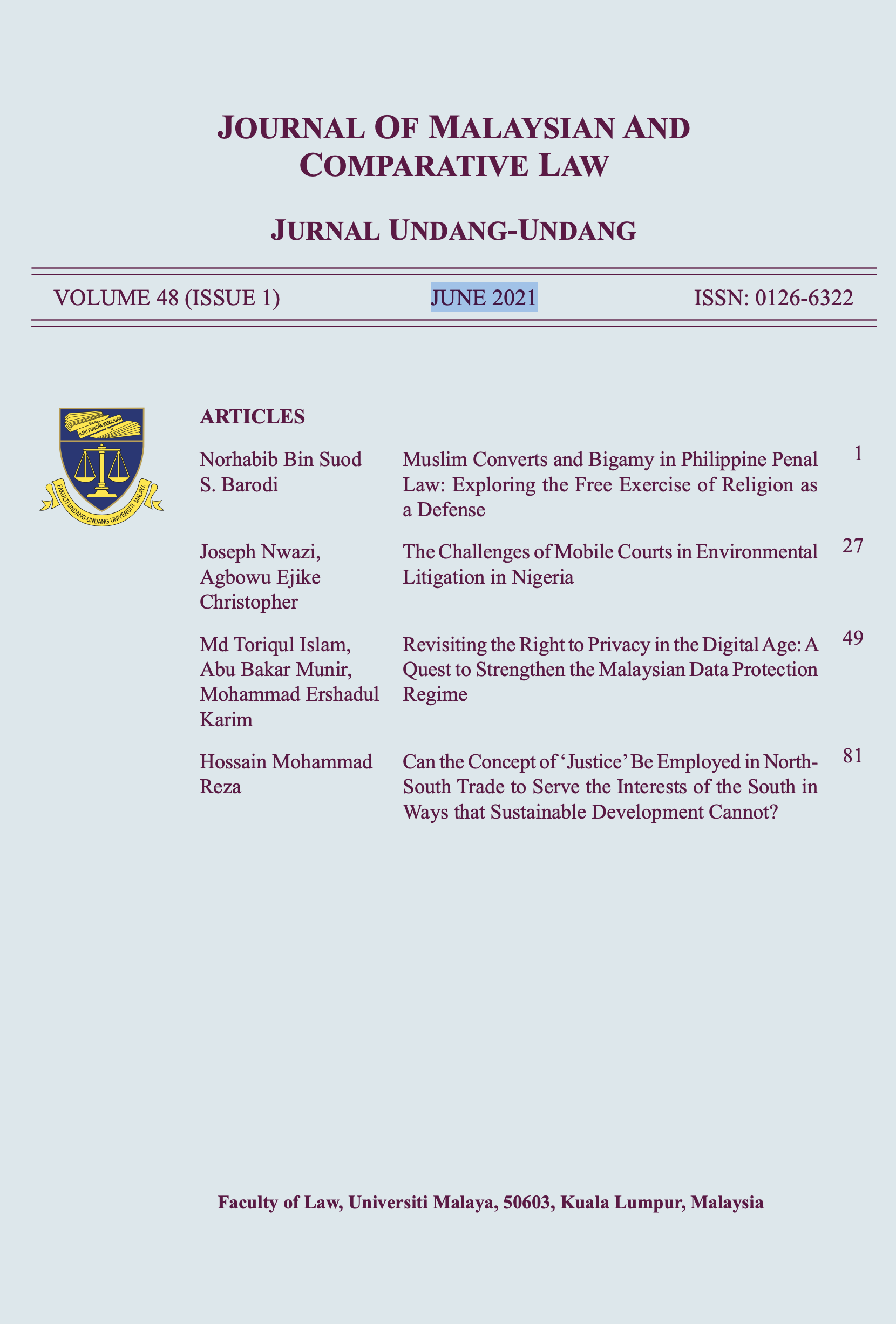NAVIGATION
Submission Guidelines
Editorial Information
Peer Review
Ethics and Malpractice Statements
Publication Schedule
Abstracting and Indexing
Artificial Intelligence Policy
Publication Fees
Contact Us


PAPER TEMPLATE






SUPPORTED SOCIETIES

Our June 2021 edition of the JMCL features a diverse selection of scholarly and stimulating articles. In “Muslim Converts and Bigamy in Philippine Penal Law: Exploring the Free Exercise of Religion as a Defense”, Norhabib bin Suod S. Barodi analyses whether the defence of free exercise of religion under the Philippine Constitution can be used against a charge of bigamy when a Muslim convert marries again after his conversion while his civil marriage is still subsisting. The author draws upon the Philippine Supreme Court decision of Estrada v Escritor to show how this might be possible.
In “The Challenges of Mobile Courts in Environmental Litigation in Nigeria”, Joseph Nwazi and Agbowu Ejike Christopher discuss the important role which mobile courts play in improving access to environmental justice in Nigeria. The authors draw attention to the challenges faced by these courts, such as limited jurisdiction and lack of security.
In “Revisiting the Right to Privacy in the Digital Age: A Quest to Strengthen the Malaysian Data Protection Regime”, Md Toriqul Islam and others conduct an in-depth analysis of the current data protection regime in Malaysia. The authors conclude that the Malaysian Personal Data Protection Act 2010 (PDPA) has many shortcomings and needs to be amended in order to strengthen it to be in line with international data protection standards, especially the General Data Protection Regulation (GDPR).
Last but not least, Hossain Mohammad Reza examines how trade, environment and sustainable development has impinged on aspirations of the global South. His piece, “Can the Concept of ‘Justice’ be Employed in North-South Trade to Serve the Interests of the South in Ways that Sustainable Development Cannot”, highlights how both GATT Articles XX(b) and (g) and the Agreement on the Application of Sanitary and Phytosanitary Measures have created avenues for imposing non-tariff barriers which has led to discrimination against the South. The author argues for the incorporation of distributive, procedural and corrective justice in the global trade regime as a pertinent solution.
Dr. Sharifah Suhanah Syed Ahmad
Executive Editor
NAVIGATION
Submission Guidelines
Editorial Information
Peer Review
Ethics and Malpractice Statements
Publication Schedule
Abstracting and Indexing
Artificial Intelligence Policy
Publication Fees
Contact Us








SUPPORTED SOCIETIES
Office:
Journal of Malaysian and Comparative Law
Faculty of Law, Universiti Malaya
50603 Kuala Lumpur, Malaysia
Phone: +03-7967-6503/6504
Email: jmcl@um.edu.my
